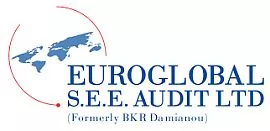Just like any ordinary business, the effects of the economic crisis have left governments tight for cash and with difficulties in meeting their budgets due to constantly growing debts. Like many countries around the globe, Cyprus is no different. In an effort to increase cash inflows, field audits from the state's tax authorities are high on the agenda. What is their primary purpose one may ask, well, naturally to verify the accuracy of annual tax returns and in cases of non submission, to determine any income tax liability which has not been duly reported. Moreover, the tax authorities argue that just as important reasons are to equally distribute the tax burden weighting within the economy, protect healthy businesses from unfair competition, continuously update tax payers on their tax liabilities and encourage a culture of voluntary compliance through tax consciousness.
A tax field audit includes all the necessary audit procedures to primarily determine the following; compliance with tax law, ensure proper books and records are kept and tax returns are submitted as prescribed by the law, all financial transactions of the business are supported by appropriate documentation and identify any actions or omissions from the business with relation to any tax matters.
Furthermore, a tax audit is not only based on the books and records kept by a business but also includes the collection of information to assess the financial status of a business, a description of operations and how they are managed, any other relevant information which is obtained or observed during the audit, including information from third parties, with the purpose of extracting conclusions on potential tax liabilities.
A tax payer is informed of a tax field audit through a letter from the tax authorities giving notice of seven to ten working days. An extension of maximum one week may be granted, but only in exceptional cases. Selection may occur purely by chance but there are indicators, "red flags" which will increase the probabilities of an audit such as; not obtaining a tax registration number, delay or non submission of financial statements, no or very low history of tax payments, unsatisfactory history of compliance, specific types of industries, various financial indicators, information for tax evasion, unexplained increase of wealth and so forth.
Usually, two tax officers will participate in the field visit at the business' premises and initially conduct an interview with the management, documenting general information such as but not limited to:
- Brief description of accounting system
- List of books and records kept by the business
- Names of persons who maintain the books and manage cash
- Journal entries are supported by relevant documentation
- Identify any unusual transactions
- Establish if there is any cash deficiency in the books
- Yearend inventory count was conducted
The above will be followed by a detailed review of the books and records if deemed appropriate, but the program of the audit may change at any time during the site visit depending on initial findings and thus, only one section may be investigated (i.e. correct deduction and payment of taxes on interest, royalties, P.A.Y.E. etc.)
A review of the books and records entails correctness checks, which are to ensure that what is included in the accounts, is correctly included ("what I see is what I expect to see") and completeness checks which are to ensure that what should be included in the accounts is actually included ("I see what I anticipate to see"). Liabilities and expenses would be subject to correctness checks as they have more chances of being overstated than understated, likewise, assets and income would be subject to completeness checks as they have more chances of being understated than overstated.
During the audit, both direct and indirect methods are adopted to determine the taxable income. The direct method would include a review of all information which can be extracted from the accounting records (direct information) such as salaries, rents, expenditures, profits and losses. This information is effectively provided by the taxpayer or reliable third parties and is assumed to be correct. Therefore, the burden of proof of not being correct rests on the taxpayer with the exception of expenses where the burden of proof that they are not correct (i.e. not tax deductible) rests with the tax authorities. The indirect method encompasses all other methods using estimates and assessments for the determination of taxable income from secondary or linked information such as capital statements, comparison of receipts with deposits, percentage of mark up, unit and volume method, proof of totals, etc. The burden of proof rests with the tax authorities.
The field audit is concluded through a discussion of suggested amendments with the taxpayer based on the site visit findings and a resolution by agreement (offer from taxpayer) is sought out on any resulting tax liability. If successful, a payment method for the relevant taxes is agreed upon for their settlement. Alternatively, without any agreement, the tax authorities unilaterally will issue a final assessment and related computation of additional taxable income that resulted from visit. Any further disputes with the tax authorities are then only resolved through the courts.
The Cyprus tax authorities strongly encourage businesses to have their auditors or alternatively their tax consultants present for the duration of a tax field audit, as from recent experiences this makes the management of organizations more comfortable with the review and facilitates the process. Moreover, modern businesses need to consider obtaining ongoing professional advice on audit and tax related matters to avoid unpleasant surprises. The bottom line simply put is that unlike dinosaurs, tax field audits are not a new type of animal, in fact they have been around for many years and yes they are far from extinct, they have evolved and are becoming more and more sophisticated.
The content of this article is intended to provide a general guide to the subject matter. Specialist advice should be sought about your specific circumstances.


